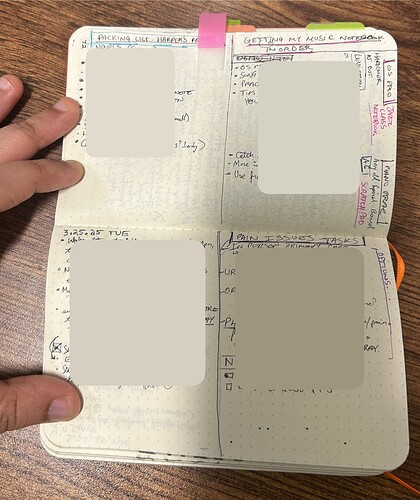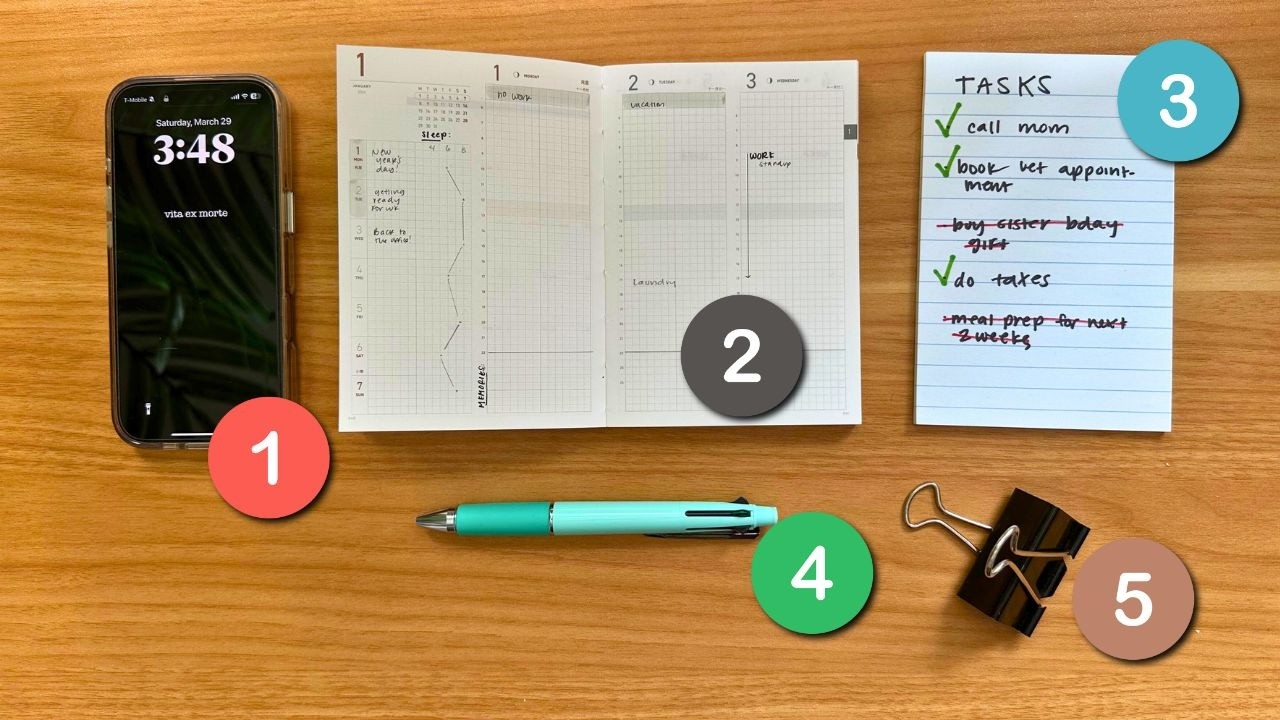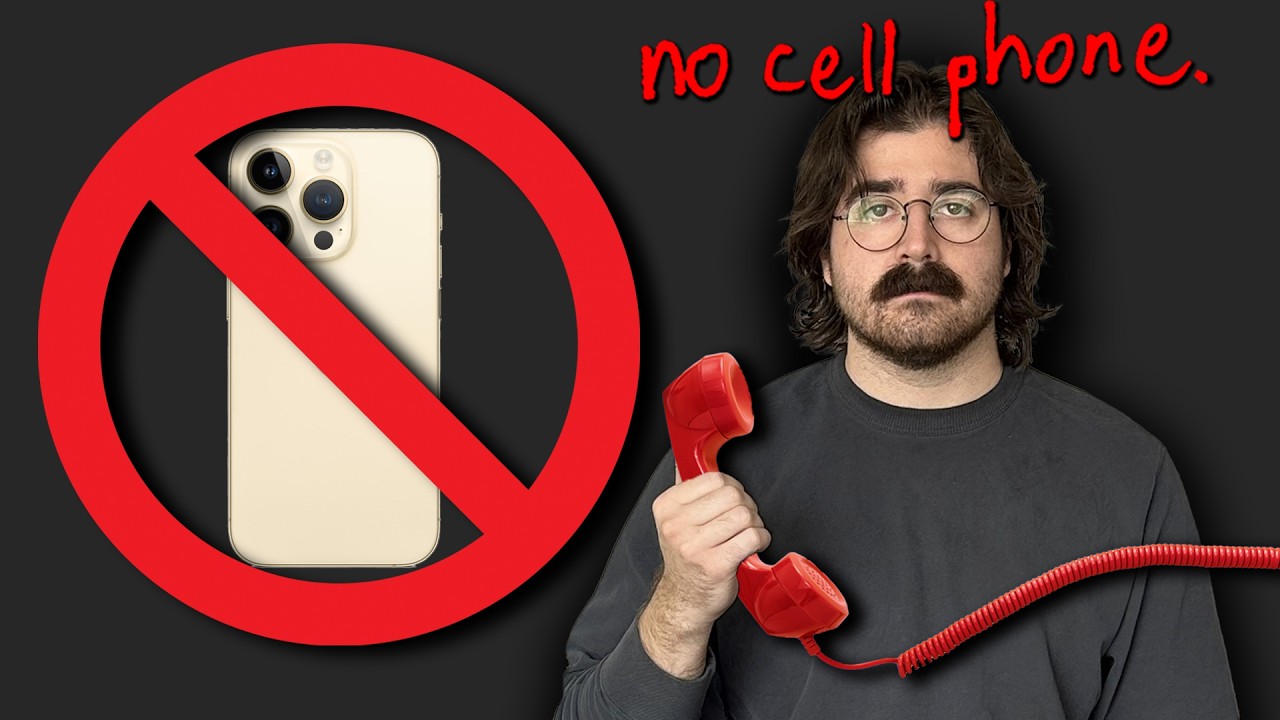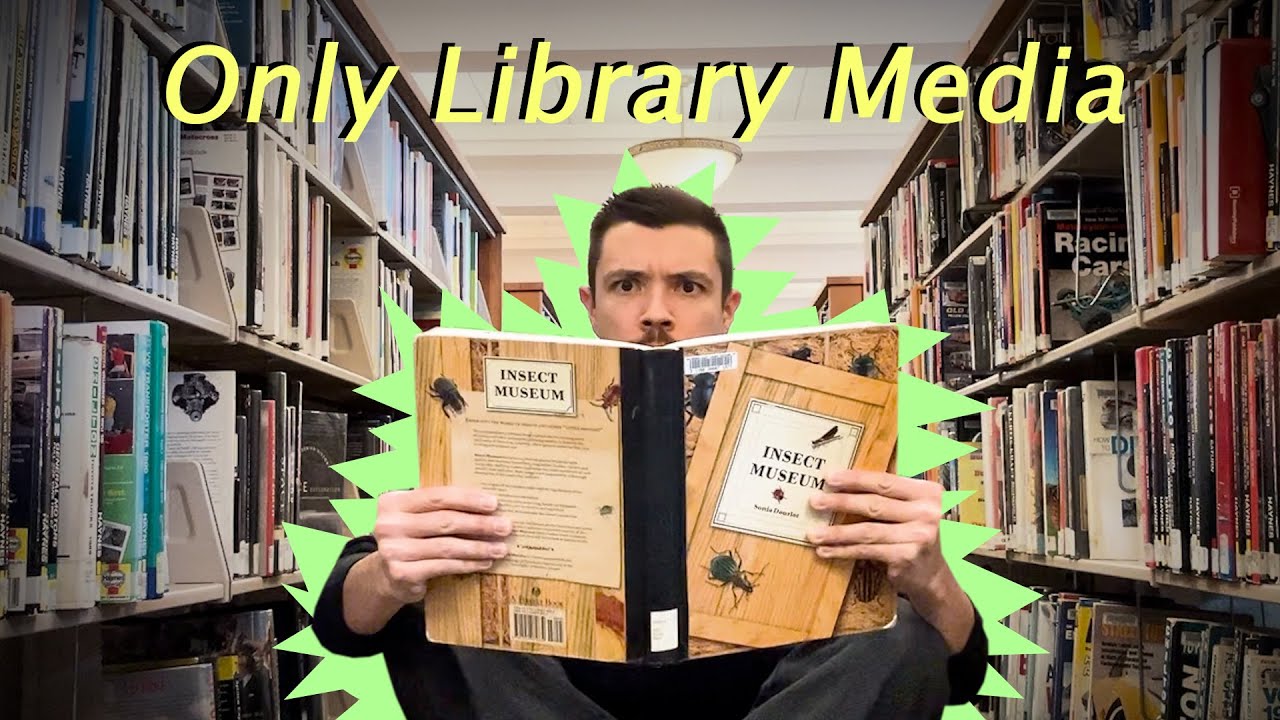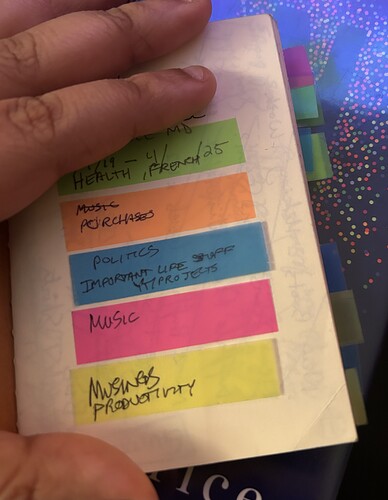At the moment I’m just keeping an epiphany journal. If I think of an interesting phrase, concept, story fragment, or quote - whatever it is - I just get it down. I don’t set an expectation of length but dating the stuff will be interesting for future me, I hope.
For a long time I’ve kept a narrative journal where I just explain things that have happened to me around the time I do the entry. I don’t pressure myself to make it regular because I already know that I like writing a journal. But I’ve recently started a separate journal that may be like what captainlove describes. A book for ideas or thoughts on some project or thing I am interested in. I don’t really mix the two.
The first journal is useful for me to get some distance on things. I write through my feelings, explaining the cause of them or trying to describe them as best as I can, and generally by the end of my entry I feel like I’ve discovered some aspect of the thing that I couldn’t appreciate before.
Someone needs to start making glass journals
I think the morning notes concept is cool - put a composition book and pen on your nightstand, and as soon as you wake up write whatever comes to mind. Good way to be creative and ‘break the seal’
the other good place to start is a pocket notebook - something between a7 and field notes - take it everywhere and write whatever you need, errands, tasks, funny thoughts, etc. this is basically how I started and then, when I found I was writing a lot of narrative type things, split those off into a leather journal
good video on reducing screen time
to go along with this great post by kate wagner on ‘phoneworld’ and the present hellscape
which links to this financial times article
the Monitoring the Future study has been asking 18-year-olds whether they have difficulty thinking, concentrating or learning new things. The share of final year high school students who report difficulties was stable throughout the 1990s and 2000s, but began a rapid upward climb in the mid-2010s.
in 2022 the share of Americans who reported reading a book in the past year fell below half.
the share of adults who are unable to “use mathematical reasoning when reviewing and evaluating the validity of statements” has climbed to 25 per cent on average in high-income countries, and 35 per cent in the US.
So we appear to be looking less at the decline of reading per se, and more at a broader erosion in human capacity for mental focus and application.
but:
Research finds that active, intentional use of digital technologies is often benign or even beneficial.
I am constantly inventing on-paper specialized scheduling formats.
I will make some printable templates and post them here tomorrow.
There are: Spiral Schedule, Pyramid Scheme, and Pyramid Scheme 2. I have also just invented Snake Scheduler.
Thanks SB.
This is an on-paper productivity ‘app’ called Priority Pyramid (I misremembered it as ‘Pyramid Scheme’ above (yes a joke title))
So yeah the task in the top level definitely gets done.
Only 1 out of the 3 tasks in the bottom level get done so they can be less pressing tasks in terms of time urgency or how much you care about them or even like cost/time or some other resources to get done. But you have still written them out and flagged them as like : “on your agenda” or whatever so yeah
Goal area is just the general like life area that you are trying to get organised like maybe “organise study desk” or “my dream indie game development ambition” or WHATEVS YOU ARE TRYING TO MAKE YOUR MARK ON OR YEAH SB
I’ve deleted every social media off my phone except tumblr/discord (used to communicate w @digs ) and sb
I’m still goof off city but at least I am reminded to goof off in more productive ways, like write in notebook or read book.
I also have begun taking notes in my Jazz class notebook of things that are not from class but might be helpful… tips from YouTube videos, jazz books I read, stuff like that
current count of active notebooks
THE BIG 3
- narrative journal (hardcover ruled a5)
- personal bujo slash daily log (a6 slim)
- pocket notebook / scratch pad (a7)
SUBJECTS and HOBBIES
4. jazz class notebook (a5)
5. piano practice journal / scratch pad (spiral bound B6 ish)
6. French notebook (spiral a6)
7. politics thoughts and readings - working notebook (a5)
LOATHSOME NECESSITY
8. work tasks / meeting notes (spiral a6 ish)
Logistics question
I hate carrying around multiple notebooks when I’m out. I feel like storage and what’s portable is a tricky decision. I’m also paranoid about losing all my journal notes when out and about
I guess it wasn’t a question
they make little edc bag organizers for ur note’s
but yeah this is a really big argument in favor of A6 n below. A6 will fit in my jacket pocket, Field Notes or A7 will fit in my pants pocket. B6-A5 will fit in a small bag. Much above that and it’s too cumbersome for me
protip flip your A6 dot or graph notebook side ways, now you have an A5 page. I’ve been doing this recently, splitting the spread into quarters, it feels more spacious somehow. it’s basically looking at 4 A7 pages simultaneously if you think about it
useful video about like, doing a planner or bullet journal in a way that works for you, and not just decorating or getting lost in creating new organizing systems
I’m about halfway through Too Much to Know: Managing Scholarly Information before the Modern Age. Can wholly recommend if you’re interested in the general premise: “what motivated early modern Europeans to collect so much dang text, and how the heck did they categorize it?”
A couple quotes I love…
wrt hierarchical diagrams in reference material:
As compilations reached large proportions, through detailed description and the accumulation of so many particulars, the diagram gave evidence that mastery of such a large scope of material was still possible, if not in one gaze, then in one set of complex interactions. In Zwinger’s Theatrum diagrams complemented the large-scale accumulation of text, not as finding devices, nor as aids to memory, but as reassurance that systematic mastery of such complex material could be achieved.
Best I can tell, there were a brief few hundred years where reference materials were comprehensive enough for a full “systematic” hierarchy of topics to make sense, but small enough for these hierarchies to be feasible to construct. So wrt alphabetical order:
In the early modern period alphabetical order itself was perceived as a kind of miscellaneous order, since the arbitrary order of letters and of the words assigned to concepts and things resulted in items positioned side by side that had no conceptual relevance to one another… of course, there was little agreement on how best to represent [systematic] relationships or on the optimal systematic order.
oh hell yeah
I’m reading something that’s sort of related, The Notebook: A History of Thinking on Paper by Roland Allen. unfortunately the totalitarian Hoopla app will not allow me to screenshot passages, but there’s a ton of cool broadly chronological details throughout history about the evolution of personal notebooks and journals from rudimentary, religious, travelogues, bookkeeping and accounting, waste books, zibaldone, common place books, Isaac Newton, Leonardo da Vinci, Samuel Pepys, table-books, ship’s logs, etc. highly recommend checking out from your local library
https://www.barnesandnoble.com/w/the-notebook-roland-allen/1143628066
I would say it is helping me think through the purposes of my various notebooks. My smallest which I called my “pocket notebook”, now I think that’s a description without a context. it makes more sense to call it a waste book - the book in which you capture the flotsam and jetsam of daily life, refine it, and transfer it over to another journal for safekeeping, at which the purpose of the book is finished
similarly with my bullet journal / daily log, the place for unsentimental capturing of day to day activities for future reflection. for example: what day did I hurt my hand? what did I do last Thursday? how many times this month did I study French?
the stuff about different people’s approaches is really cool. da Vinci wrote on every surface with nearly illegible handwriting. Newton worked out his theories of calculus in his waste book. Pepys wrote diaristically about everything. etc
Waste book is a great descriptor! Once I stopped maintaining my main journal as its own space, I started writing down a lot more. The term I keep coming back to is “guilt-free” note-taking, though it unhelpfully implies that structured notes are “guilt-ridden”…
Question for ya, if you don’t mind me asking: roughly what percentage of your waste book notes end up in other journals? More specifically, I’m curious if you use the journal-transfer process to resolve notes which are dead ends/redundant/unhelpful/untrue.
I’ve just been in the process of transferring some notes over just now -
-stuff like grocery lists, takeout orders etc gets crossed out as soon as it’s no longer relevant
-any music movie or book recommendations I move to a specific page in my bullet journal
-thoughts on politics etc, I either move them over to my politics notebook as is (if they’re well formed) or write some fragments to spur thought if they’re not
-personal or emotional stuff, more literary things, I move to my narrative journal if I feel it’s worth it, otherwise just leave it
for stuff that I want to move over, I put a little post it flag, with some basic color coding (blue= politics, green= health etc). I think at the end of 60 pgs of A7 paper I had about 15-20 post it flags. I am taking my time moving them over since the post it flags aren’t going anywhere. I don’t actually throw out the book, it still goes on the bookshelf.
I came up with these tags mostly after I was done with the notebook, one of the reasons I like a small notebook for this, not so intimidating to reread and try and summarize. (apparently Darwin also used this 3x4" size when he was in the Galapagos etc)
funny moment from the first one where the dude says he feels like he is becoming a normy (in a good way) since he is no longer able to watch costco guys content. how the indices of normydom have really shifted in the past ten years… knowing instagram “memes” = being alt, a nerd, a weirdo is the same to me as people calling themselves huge nerds because they are into star wars or dnd in 2025
i liked both of these. i share their sympathies though i have been creating a similar headspace, habit, and physical relationship to things for years already. it’s nice to see the kind of naive cute expressions like woah! you can just read a novel or watch a random movie and it’s good??. really heartwarming. clarity and intent struggling to be born!
tyyyyy for the helpful breakdown <3
re: your note-transfer approach for “politics etc”. Using transfer time to explore a topic at hand, even if your first attempt wasn’t successful/well-formed… that’s really cool, trusting your past self to spot a worthwhile topic even if the words weren’t yet there.
started keeping a notebook from daiso and a .3mm mechanical pencil from blick on my bedside table for dream journaling when i wake up…



